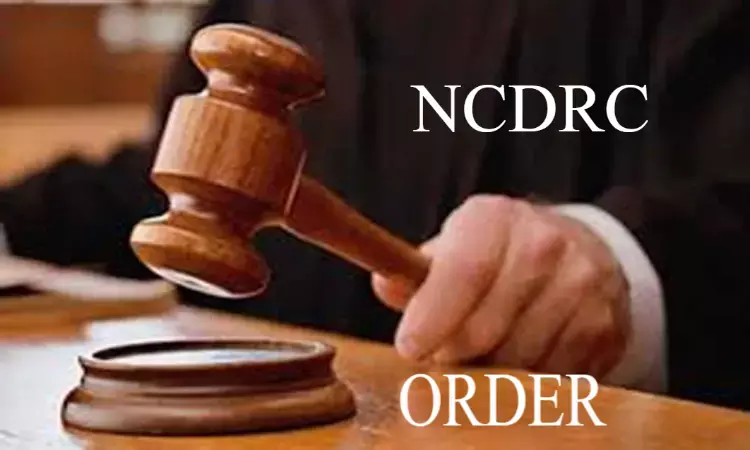- Home
- Medical news & Guidelines
- Anesthesiology
- Cardiology and CTVS
- Critical Care
- Dentistry
- Dermatology
- Diabetes and Endocrinology
- ENT
- Gastroenterology
- Medicine
- Nephrology
- Neurology
- Obstretics-Gynaecology
- Oncology
- Ophthalmology
- Orthopaedics
- Pediatrics-Neonatology
- Psychiatry
- Pulmonology
- Radiology
- Surgery
- Urology
- Laboratory Medicine
- Diet
- Nursing
- Paramedical
- Physiotherapy
- Health news
- Fact Check
- Bone Health Fact Check
- Brain Health Fact Check
- Cancer Related Fact Check
- Child Care Fact Check
- Dental and oral health fact check
- Diabetes and metabolic health fact check
- Diet and Nutrition Fact Check
- Eye and ENT Care Fact Check
- Fitness fact check
- Gut health fact check
- Heart health fact check
- Kidney health fact check
- Medical education fact check
- Men's health fact check
- Respiratory fact check
- Skin and hair care fact check
- Vaccine and Immunization fact check
- Women's health fact check
- AYUSH
- State News
- Andaman and Nicobar Islands
- Andhra Pradesh
- Arunachal Pradesh
- Assam
- Bihar
- Chandigarh
- Chattisgarh
- Dadra and Nagar Haveli
- Daman and Diu
- Delhi
- Goa
- Gujarat
- Haryana
- Himachal Pradesh
- Jammu & Kashmir
- Jharkhand
- Karnataka
- Kerala
- Ladakh
- Lakshadweep
- Madhya Pradesh
- Maharashtra
- Manipur
- Meghalaya
- Mizoram
- Nagaland
- Odisha
- Puducherry
- Punjab
- Rajasthan
- Sikkim
- Tamil Nadu
- Telangana
- Tripura
- Uttar Pradesh
- Uttrakhand
- West Bengal
- Medical Education
- Industry
Proving Suffering of ailment by patient after surgery does not amount to medical negligence: National Consumer forum

Delhi: Proving the suffering of ailment by the patient after the surgery does not amount to medical negligence, the National Consumer Dispute Redressal Commission (NCDRC) recently held while dismissing a plea alleging medical negligence on part of a hospital and a doctor while performing a knee replacement surgery on a patient who was suffering from Osteosarcoma.
While examining the case, NCDRC found that the allegations were also vague" and built on "conjectures and surmises". The petitioner previously approached the state consumer commission stating that different size of the prosthesis was used during the surgery which caused damage to the vessels and infection in the operated area of the patient and which ultimately deteriorated the condition of the patient.
" Therefore, the Complainant's allegation about Prosthesis of a different size than that prescribed earlier was used which resulted in pain to the patient which had to be ultimately removed is not sustainable. "
" the allegation of the Complainant about complete mismanagement during the Surgery in the Operation Theatre as both the Orthopaedic Surgeon and the Plastic Surgeon were not present at the same time is also not sustainable as it is clear that the first part of the surgery is performed by the team of Orthopaedic Surgeons who do excision of the diseased bones and implantation of the Prosthesis, then the reconstruction of the tissues around the operated area is to be done by the second Team of Plastic Surgery. Therefore, there was no need of Plastic Surgeon to be present during 1 part of surgery... Such allegation of the Complainant is based on conjectures and surmises; and is therefore vague."
" doctor or surgeon cannot assure that the outcome of any surgery would be beneficial. The court held that a professional might be held liable for negligence either if they do not possess the requisite skills that they claimed to have, or they don't exercise the skill which they have but a doctor could not assure full recovery of a patient."
The skill of medical practitioner differs from doctor to doctor. Courts would indeed be slow in attributing negligence on the part of a doctor if he has performed his duties to the best of his ability and with due care and caution. Medical opinion may differ with regard to the course of action to be taken by a doctor treating a patient, but as long as a doctor acts in a manner which is acceptable to the medical profession and a court finds that he has attended on the patient with due care skill and diligence and if the patient still does not survive or suffers a permanent ailment, it would be difficult to hold the doctor to be guilty of negligence.
" It is pertinent to note that the patient died after eight months of the surgery and it was not due to any infection or any deficiency in duty of care of the treating doctor. The patient died due to metastasis in the lungs which is known in the Osteosarcoma – the aggressive malignant tumour. The expert opinion did not comment on any deviation of treatment or negligence by the doctors the hospital", stated the commission.
The commission found that medical negligence of the treating doctors or the hospital cant be attributed hence the impugned order to the extent it is directed against the hospital "cannot be sustained and is accordingly set aside."
Considering the sufferings of 16 years young girl who died of highly aggressive bone cancer (Osteosarcoma) and the loss & agony of the bereaved parents who spent two decades in the litigation, with my sympathies for the parents of deceased, let Tata Memorial Hospital extend its charity and donate the amount deposited before this commission along with accrued interest to the Complainant However, it shall not be construed as a precedent in any manner.
To view the judgement, click on the link given below:
Sanchari Chattopadhyay has pursued her M.A in English and Culture Studies from the University of Burdwan, West Bengal. She likes observing cultural specificities and exploring new places.


